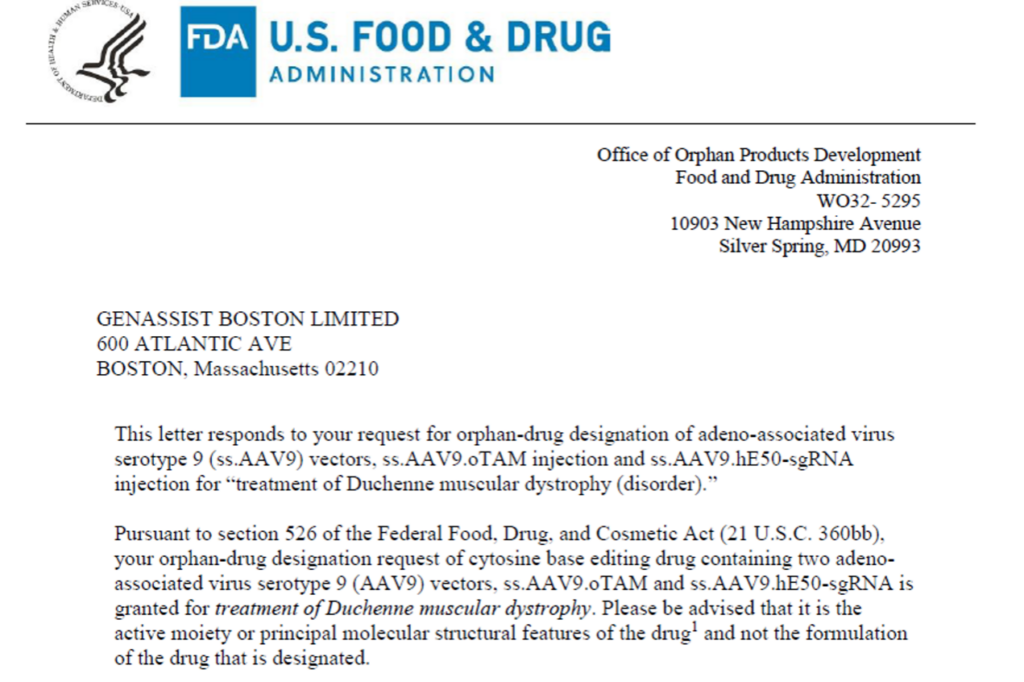June 9, 2025 GenAssist Ltd (GenAssist) announced that the United States (U.S.) Food and Drug Administration (FDA) has granted Orphan Drug Designation (ODD) to GEN6050X, the company’s first in vivo base editing drug for the treatment of Duchenne Muscular Dystrophy (DMD).

“DMD is a devasting progressive neuromuscular disorder that affects approximately 450,000 to 600,000 patients worldwide. The disease leads to progressive muscle wasting, loss of ambulation, and ultimately early death due to cardiac and respiratory failure.” said Dr. Chunyan He, CEO of GenAssist. “Receiving ODD from the FDA underscores the importance of innovative therapies in this field. GEN6050X, based on our proprietary base editing platform technology, has demonstrated encouraging clinical potential and could represent a best-in-class, transformative treatment for patients with DMD.”
About ODD
The FDA’s Orphan Drug Designation is granted to investigational therapies intended for the rare diseases that affect fewer than 200,000 individuals in the U.S. Benefits of this designation may include tax credits for qualified clinical trial costs, exemption from certain FDA application fees, and seven years of market exclusivity upon regulatory approval.
About GEN6050X
GEN6050X injection is a novel intravenous cytosine base editing drug using dual AAV9 vectors, designed for DMD patients amenable to exon 50 skipping. It utilizes a dual AAV9 vector system, consisting of ss.AAV9.oTAM and ss.AAV9.hE50-sgRNA. One vector encodes the oTAM base editor driven by a muscle-specific promoter, while the other AAV9 vector carries 3 copies of single-guide RNA and the human ACTG1 gene, driven by another muscle-specific promoter.
GEN6050X is based on GenAssist’s unique RNA editing-free Targeted AID-mediated Mutagenesis (TAM) cytosine base editor technology. Through one-shot systemic administration, GEN6050X can permanently restore the expression of dystrophin through editing the mutated DMD gene.
The ongoing investigator-initiated trial (IIT) at Peking Union Medical College Hospital (NCT06392724) has demonstrated favorable safety profile, positive DNA editing, dystrophin restoration, and early functional and cardiac improvements in the first two patients treated. Meanwhile, dosing of the third patient in the ongoing IIT study is currently underway.
GEN6050X received FDA IND approval on March 6, 2025, and GenAssist is preparing to initiate Phase I clinical trial in US.








